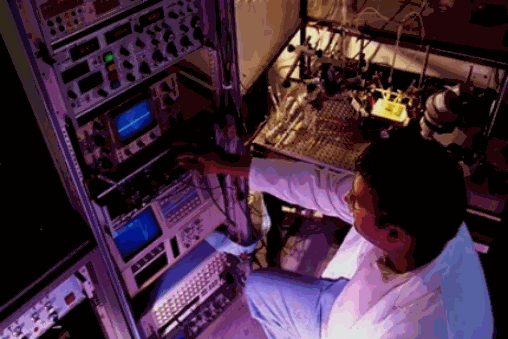
|
Advanced Technology Initiative Links:
The Advanced Technology Initiative Has Been Endorsed by: American Electronics Association Columbia River Economic Development Council Linear Technologies Washington Biotechnology & Biomedical Association PathoGenesis Corp. AquaSeed Corp. SEH America Siemens Solar WaferTech Spokane Valley High Technology Council Washington Software Association Atairgin Biotechnologies |
The Advanced Technology InitiativeA Brief Overview...
The ChallengeWhat industries will lead Washington in the next century? Where will we find the new industries, the new Boeing or Microsoft, of the next century? How can we take advantage of new technologies to transform traditional sectors like agriculture, construction, and forest products?
The OpportunityThe Advanced Technology Initiative is a partnership between the legislature, private business, and the state's research universities. It creates new programs specifically targeted toward creating new industries and transforming existing industries in the areas of greatest opportunity for the state of Washington. The ATI is a bridge between cutting edge research and education and new economic activity.
What is the Advanced Technology Initiative?The Advanced Technology Initiative represents a major new tool for stimulating business activity in the state of Washington. The Advanced Technology Initiative seeks funding to create and support a new type of structure at the state's two research universities. The heart of this structure is a set of "expertise clusters" composed of faculty and professional staff who will be selected to work collaboratively with the private sector. The goal is to leverage research into direct economic benefits. The ATI is aimed at transforming existing industries and generating new enterprises.
Leadership and Investment The Advanced Technology Initiative draws on proven models of
economic and research development from Washington's own
history. In the 1950's visionary members of the Washington
legislature invested in the expansion of the School of
Medicine at the University of Washington. Today, the fruits
of that unprecedented investment can be seen in many areas.
The School of Medicine has become a world leader in research
and treatment. It has become a regional magnet for medical
services. It has received hundreds of millions of dollars in
out-of-state grants and contracts and has become a major
generator of high paying jobs.
The Advanced Technology Initiative draws on proven models of
economic and research development from Washington's own
history. In the 1950's visionary members of the Washington
legislature invested in the expansion of the School of
Medicine at the University of Washington. Today, the fruits
of that unprecedented investment can be seen in many areas.
The School of Medicine has become a world leader in research
and treatment. It has become a regional magnet for medical
services. It has received hundreds of millions of dollars in
out-of-state grants and contracts and has become a major
generator of high paying jobs.
Advanced technology initiatives have been successful in other states including Florida, New Mexico, and Utah. On one occasion private funds made it possible to prove the value of expertise clusters in this state. Using these funds, the UW was able to recruit a national leader (Dr. Leroy Hood) as the senior member of a biotechnology cluster. The new activity at the UW immediately bolstered Seattle's biotechnology industry, attracting some of the field's best talent and tens of millions of dollars in private and federal research funding to our state. New jobs and new companies (capitalized at over $50 million) have been created directly as a result of this work. It is one reason Washington has become a national leader in biotechnology.
What Are "Expertise Clusters" and What Do They Cost?Each expertise cluster consists of 3-5 faculty members and/or technical support staff, organized around a particular theme and nationally recognized research leaders. These researchers will direct their efforts toward providing the intellectual capital for new companies, increasing the competitiveness of regional industries, and educating students to work in new and transformed industries. Faculty and staff will be chosen specifically for their demonstrated ability to work in harmony with the private sector to exploit the state's best opportunities in advanced technologies.The cost of each cluster is approximately $500,000 per year for salaries, benefits, and operations. Additional start-up costs will be sought in some cases. |